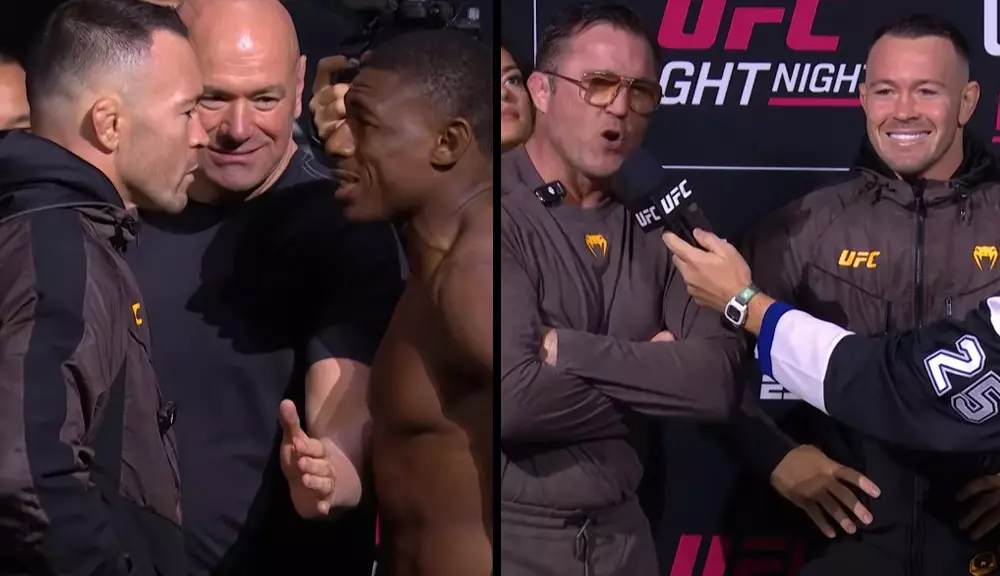The world of mixed martial arts (MMA) is rife with drama and emotions that spill beyond the cage, particularly after pivotal fights. Following UFC on ESPN 63, a particular exchange between Chael Sonnen and Colby Covington has sparked discussions within the MMA community. Covington endured a doctor-stopped TKO defeat against Joaquin Buckley, igniting debates about coaching strategies and post-fight assessments. Notably, former champion Henry Cejudo openly criticized Sonnen’s post-fight commentary, amplifying the conversation regarding the responsibilities of coaches in combat sports.
Henry Cejudo, a revered figure in the MMA arena, took to his YouTube channel to voice strong disapproval regarding Sonnen’s reaction during and after the fight. According to Cejudo, Sonnen’s encouragement did more to mislead than uplift Covington. Cejudo argued that instead of reinforcing Covington’s resolve, Sonnen was “gaslighting” his fighter into believing he was on the brink of victory when, in his view, the scenario was quite the opposite. This segment of the conversation underscores a philosophical divide in coaching tactics—between motivating athletes and offering them a realistic assessment of their performance.
Cejudo’s comments take on an even heavier context regarding fighter safety. In combat sports, the line between motivation and realism is thin and can have significant implications for an athlete’s health. With Sonnen’s exuberance over Covington’s performance, Cejudo highlighted a critical moment where even Sonnen considered halting the fight. This moment serves as a poignant reminder that coaches must prioritize their fighters’ safety over the pursuit of a fleeting narrative of success. In this instance, while the camaraderie and support from coaches are vital, they should not eclipse the concern for the fighter’s welfare.
Sonnen’s infamous talent for selling a narrative raises vital questions about the nature of coaching in MMA. The contrast between cheerleading and candid analysis can be significant, especially when the stakes are high. Cejudo acknowledged Sonnen’s skill in engaging and hyping up his fighters, dubbing him “the best damn salesman in the entire damn MMA world.” However, the price of such salesmanship can be steep if it clouds the judgment regarding a fighter’s ability and their conditions in a fight. This dynamic necessitates a re-evaluation of what it means to be a coach in a sport where brutal reality often clashes with the desire for narrative triumph.
The exchange following UFC on ESPN 63 highlights a broader conversation about the balance of encouraging support and honest critique within the coaching realm of MMA. Cejudo’s criticism of Sonnen serves not only as a defense for Covington but as an invitation for coaches to foster environments characterized by both motivation and realism. Ultimately, the health and safety of fighters should always transcend the allure of a sensational narrative. While the fight game thrives on hype, it is the responsibility of coaches and mentors to ensure that their fighters are protected both in and outside of the octagon.

